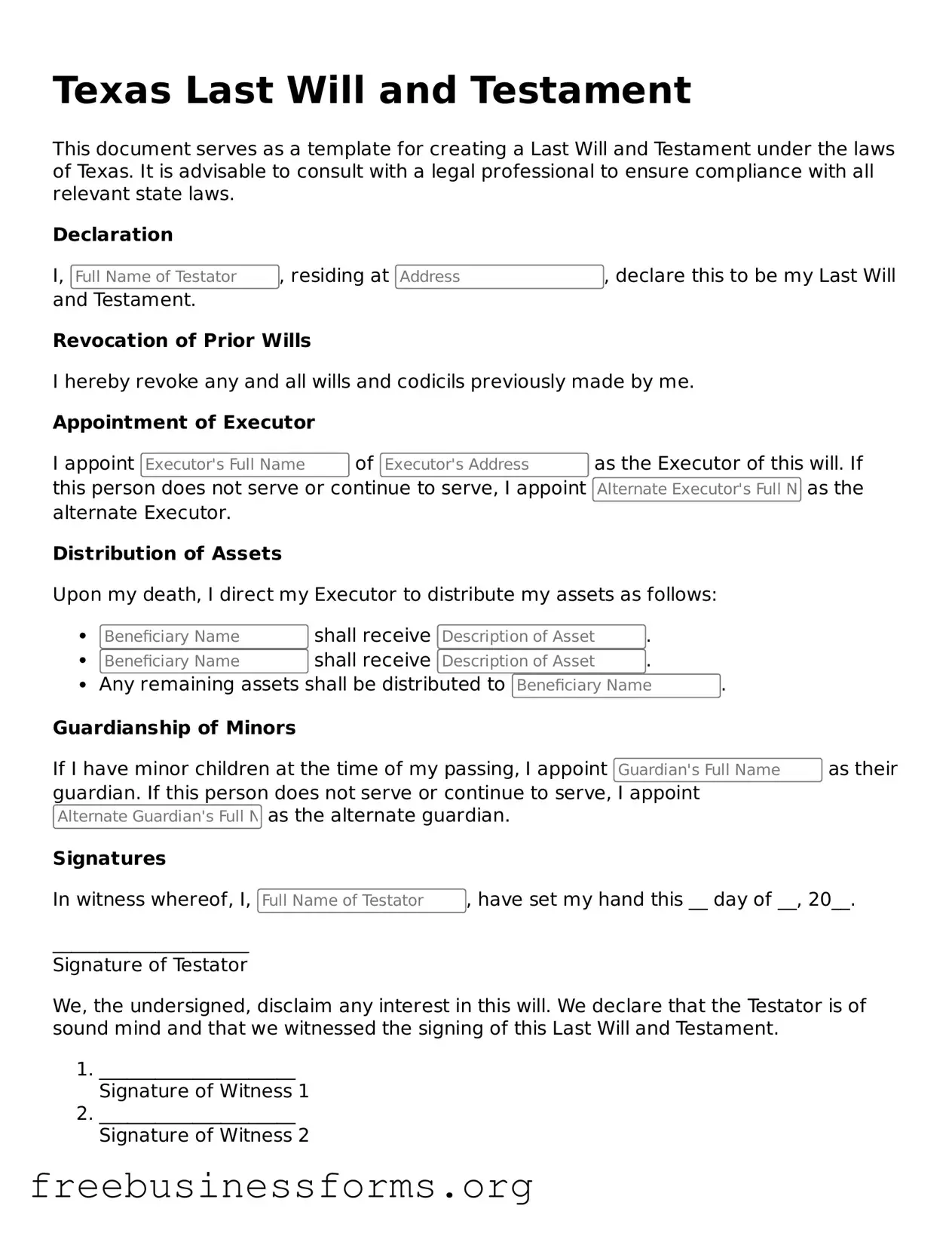Blank Last Will and Testament Template for Texas
A Texas Last Will and Testament form is a legal document that outlines how a person’s assets and responsibilities will be distributed after their death. This essential tool ensures that your wishes are honored and can provide peace of mind for you and your loved ones. Understanding its components and requirements can help you navigate the estate planning process effectively.
Open Form Here

Blank Last Will and Testament Template for Texas
Open Form Here

Open Form Here
or
↓ PDF File
Quickly complete this form online
Complete your Last Will and Testament online quickly — edit, save, download.